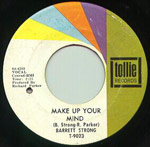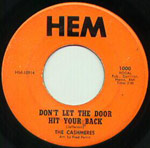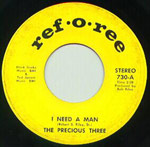
| 1.
What's in a prefix? Nothing. Everything. Northern Soul...the prefix creates a prejudice, for or against. Fans keep the faith - they believe, they dance in a similar way, variations depending on ability to master the moves, or desire to improvise. And the acrobatics.
We're in the basement of a West End pub watching the people dance. There aren't many of them, but that doesn't matter. One guy is at least 40-something, possibly in his fifties. He wears a denim shirt, has grey hair, broad shoulders and a girth that's on the large side but not in the realms of 'fat'. The thing about him is his obvious dedication to the music and the way he moves. He dances in the 'Northern' manner, but restrained, in control, and very light-footed. These things about him amaze me. He seems to be on his own.
Something about Northern Soul makes a man his age leave his house to go into the West End and dance alone. I'm sure he never feels alone as long as the DJ plays the music he loves.
2.
It's grim up North. They still wear clogs, cloth caps, hobnailed boots and walk streets filled with smog from eco-unfriendly factories. They lives in rows of old houses, the roofs of which glisten from eternal rain. The girls all chew gum and look like Rita Tushingham. They work in factories. The blokes all look like Albert Finney in Saturday Night, Sunday Morning.
3.
Down South is London, where trends come and go at the flick of a cross fader. Micro-happenings make brief appearances in the listings before disappearing, replaced by another. Transient, tired of the super club. To establish an alternative is impossible. Anything set in so much stone cannot be good. The masses move one way, with the flow of this and that. Others wait for one night, ears to the ground, they go, flyers in hand. London consumes everyone and everything. Those who conquer it are the mainstream rulers making all that cash from popular culture. |

| 4.
Time twists history to the point where it cannot be read so easily. Yesterday's faith in another past is re-read in the future. Thus, Northern Soul emerged in the 70s as a phenomenon on a nation wide scale. Flares flapping, arms flailing, a high kick, a backdrop, a bag...look at them up there...they danced in a casino. 25 years later, one small revival, maybe another...it kicks and moves but can't be reborn again, properly.
The line is unclear unless you look closely. From 60s soul clubs, the scene continued to become something else, with time passing the music by, securing it's place in the book of devotion. Manchester's Twisted Wheel, Stoke's Golden Torch, Blackpool's Mecca...places of worship.
5.
Oldies, newies, new oldies, rare, popular, stompers, shufflers, disco, jazzy - DJs stuck white labels on the 45s not, they say, to be elitest, but to prevent bootlegging that dimished the value of their work, their research, their trips to the USA, the hours spent in basements pulling out the known and guessing at the greatness of the unknown - try to break a tune - it doesn't happen - persist or give up - create a demand - 25 years later, they all appear on CD compilations for everyone to enjoy.
6.
DJs still only play vinyl 45s, as if the format ensures credability. The music is not everything. Culture takes over. Every Top Ten list is different since there are three million tunes to chose from. Stax, Atlantic, Motown - rarely - a thousand tiny unknown labels form a part of America's soulful history that nobody knows about. |

| 7.
I talk to a DJ and we discuss the rarity phenomenon. He suggests that not everything that's rare is necessarily good. I couldn't agree more, warming to his lack of snobbery, his openness. He's part of a DJ line-up on a supposed 'Mod All-Nighter' and has to wait until four in the morning to play his next set. He isn't happy about this because he's tired and the music takes is the late-end of the 60s, the semi-psychedelic. Neither of us are happy about that. This is not 'Mod'. Can't they get it right?
8.
Cultural lines criss-cross in 2001. Mods danced to soul in the 60s. Boys and girls danced to 60s soul in the 70s. Today, a 'mod' might be seen at a Northern Soul night, reading the music in another way from those who align themselves to what happened up North in the 70s.
9.
Musical lines criss-cross. A soul night might incorporate the earlier, R&B-type sound of the 60s. It is not the classic 'Northern' sound, but it relates to the modernist scene. What became known as the classic 'Northern' sound often involves the pounding beat that panned out across black American music after the success of the Motown label. This archetypal sound attracts derogatory comments from cynics standing outside of the whole thing. |

| 10.
Someone suggested to me that the Goldmine compilations do not adhere to the same kind of quality control as Kent. This may be true, but on Northern Soul Time, for instance, amongst the 60 tracks on the dble CD, you have Ollie Jackson's 'Just A Little While', Mickie Champion's 'What Good Am I (Without You)', Norma Jenkins & The Dolls' 'The Airplane Song'. Every compilation contains a clutch of killer tunes.
11.
Admirers from the outside looking in tend to be more choosy. Devotees are less discerning. It's the way of all genres.
12.
To drop the prefix is to banish a movement in favour of the music. But, to talk simply of 'soul' is to allow for so many possibilities, from Stevie Wonder to Art Wheeler.
© Robin Tomens |



